Recommended Reading
The Zen Computer Dojo recommended reading list includes
works by the dojo founder, Philip Toshio Sudo, as well as other recommended
titles. If you have a book you'd like to recommend to the dojo membership,
send your suggestion to psudo@zencomputer.com
(subject heading: ZC Reading) along with a note about what makes it worthwhile.
(Note: These recommendations are offered in association with
Amazon.com. The Zen Computer Dojo receives a small referral fee for
any purchases made through this page via Amazon.com.)
text only version
ZC Quote:
We all have to figure things out for ourselves in this life. But how
often do we forge off into "new" discoveries only to learn that
ten thousand people have been there already? So much has been left to us
by the great senseis--the ones who have gone before. It's all written
down in the books. Even though we have to discover the truth for ourselves,
we forget sometimes that the sages are there to help us. In the great books
of instruction, the answer will be right there, and you will understand
it. One book can show you the way.
--From Zen Computer, Chapter
9, "Trouble-Shooting Guide"
Books by Philip Toshio Sudo
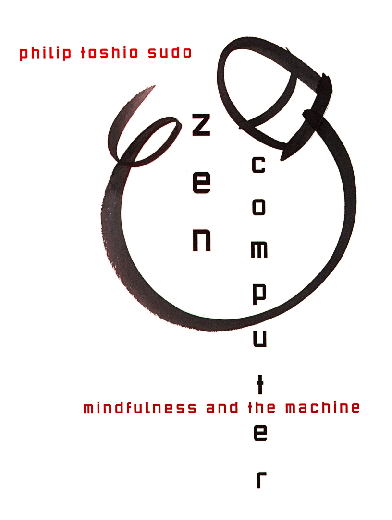 |
Zen
Computer
Anyone who has ever cursed a computer will benefit from Zen Computer,
with its soothing approach to living calmly amid the constant upheavals
of new technology. Simple and easy-to-read, it shows how the ancient principles
of zen philosophy apply to the modern science of bits and bytes, helping
computer novices and the techno-savvy alike deal with everything from computer
crashes to major life changes. Divided into short, quick chapters, the book
includes a user's guide to mindful computing and features "The Seven
Rules of Zen Computer." Quotes from thinkers such as Blaise Pascal,
Albert Einstein and Bill Gates illustrate the links between Western science
and Eastern philosophy, making Zen Computer accessible to anyone, regardless
of their familiarity with Zen.
Read the first chapter here. |
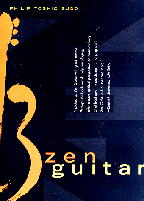 |
Zen
Guitar
Take the ancient wisdom of the East, apply it to the most popular instrument
in the West, and what you get is Zen Guitar-- a series of life lessons
written through the metaphor of music. Drawing on the teachings from the
zen arts of Asia, Zen Guitar is for music-lovers of all levels, from
toe-tappers to working professionals. Readers won't just learn how to play
guitar, they will learn how to live life through music. While other books
have shown the applicability of zen to endeavors such as karate, archery,
and flower arranging, Zen Guitar is the first of its kind to introduce
zen philosophy through music. Making no mention of scales or notes or music
theory, it's written so that anyone, even those knowing nothing about music,
can learn to identify the zen spirit in a song and see how it carries over
to all walks of life, from the classroom to business to sports to childrearing
and the home.
Read the first chapter here. |
Other recommendations
Many books on zen treat the subject in a way that's esoteric or difficult
for the lay reader to comprehend. When readers ask me to recommend zen books,
I suggest the following, all of which convey the essence of zen in a simple,
straightforward way. Some seem to be out of print, but they're all worth
looking for.
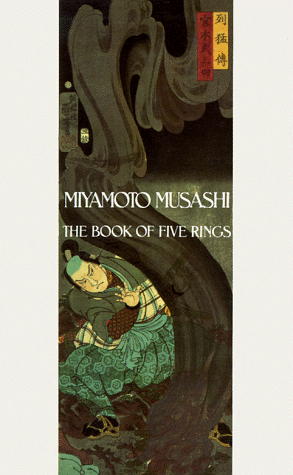 |
The
Book of Five Rings by Miyamoto Musashi
A major influence in the writing of Zen Guitar. Musashi was a legendary
samurai in Japanese history, as well as one of its most revered artists
and craftsmen. His 17th century book is a classic treatise on strategy and
swordsmanship. But of course, the the sword here is just a metaphor. Everything
in the book has broader meaning. I recommend the book in this translation
by Nihon Services Corp. In my view, it's far superior to the other four
translations available. |
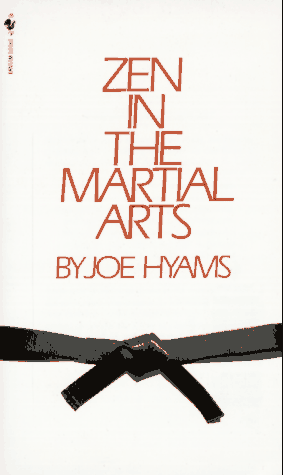 |
Zen
in the Martial Arts by Joe Hyams
A good, simple intro to some fundamental zen ideas, and very easy to
read. Hyams was a student of the famed martial artist Bruce Lee. Even if
you have no interest in the martial arts, the ideas he talks about apply
to anything. This is usually the first book I recommend to people who know
nothing about zen. |
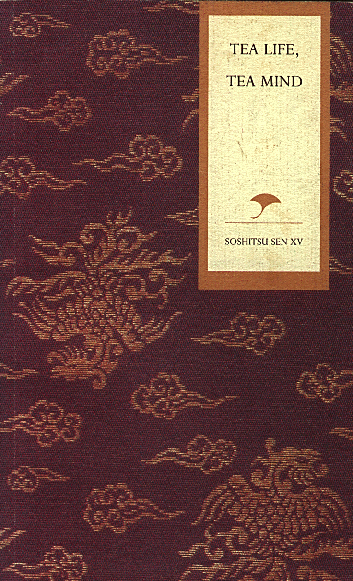 |
Tea
Life, Tea Mind by Soshitsu Sen XV
In Japan, the tea ceremony is a symbol for all human relations. To learn
the tenets of the tea ceremony is to learn how to conduct yourself in the
world at large. This is an excellent intro to zen aesthetics by Japan's
master of the tea ceremony, worth digging up even though it's out of print.
Another simple-but-deep book that's very easy to read. |
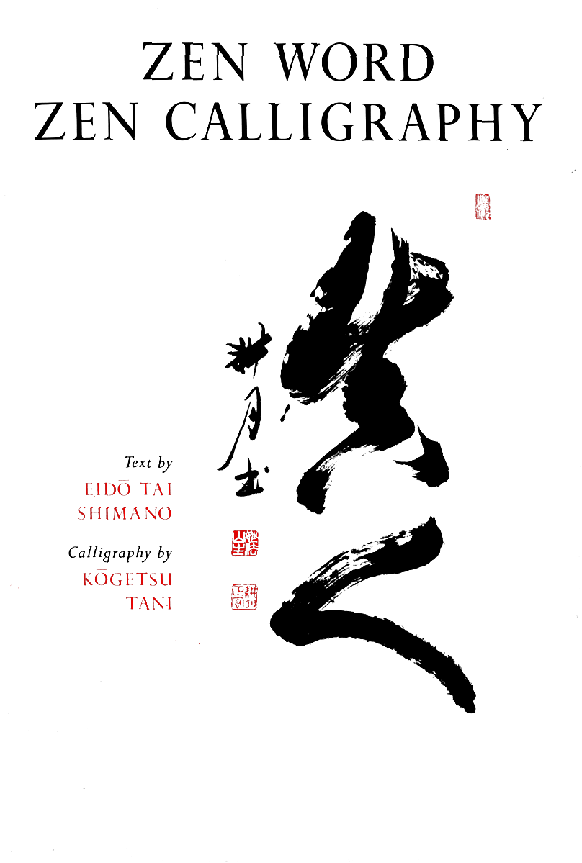 |
Zen
Word, Zen Calligraphy by Eido Tai Shimano and Kogetsu Tani
A beautiful book that combines the of zen calligraphy of Tani with "teaching
commentary" by Shimano that draws out the meaning of each calligraphy
in a short zen lesson. An excellent, easy intro to some key zen concepts,
although again, it seems to be out of print. Given the exquisite nature
of the calligraphy, I much prefer the oversize hardcover edition (the paperback
doesn't do justice to the artwork). |
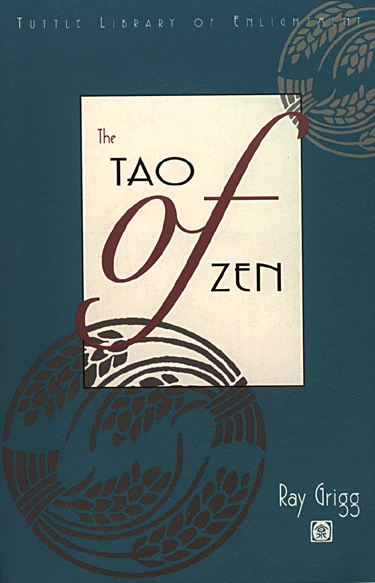 |
The
Tao of Zen by Ray Grigg
If you want to understand the history of zen--where it comes from and
the origins of its ideas--I highly recommend this work by Grigg, both for
its insight and readability. Grigg shows how the essence of zen evolved
out of Chinese Taoism, and clearly delineates the differences between "pure"
zen and Zen Buddhism. Written in a way that even nonscholars can understand. |
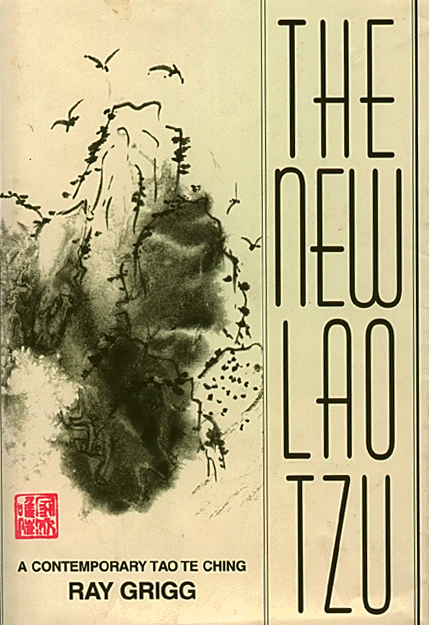 |
The
New Lao Tzu, a contemporary Tao Te Ching by Ray Grigg
According to legend, the sage Lao Tzu wrote this classic summary of wisdom
known as Tao Te Ching about 2,500 years ago. Its enigmatic, mystical essence
serves as the foundation of Taoism, and thus, zen. As many translations
of this landmark work abound as the Bible. But I like Grigg's because doesn't
go for a literal reading of the text. Instead, he tries to capture its essential
wisdom in language that speaks directly and poetically to the modern reader. |
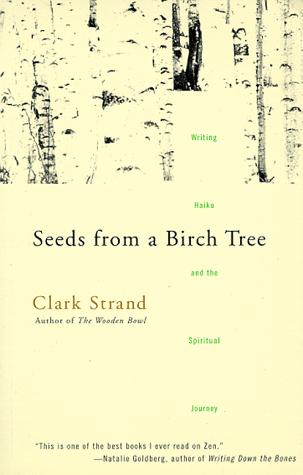 |
Seeds
From a Birch Tree: Writing Haiku and the Spiritual Journey by Clark
Strand
A good intro to the art of writing haiku, the three-line, 17-syllable
form of zen poetry. About a year ago I received an advance copy of the book
and was asked to offer a blurb for the book jacket. I wrote, "In everything
ordinary lies a poetic truth, and Strand shows us how to find it. Reading
Seeds From a Birch Tree, I felt as though I were watching the bloom
of a cherry blossom--so brief, so beautiful, so simple, so profound." |
Welcome | What's
New | FAQ | Book | ZC Speaks | 01 Pixel Gallery
| 24-Hour Zen |
Reading | What
You Can Do | Links | Shop
| E-mail








